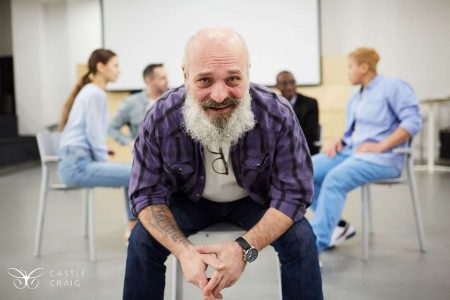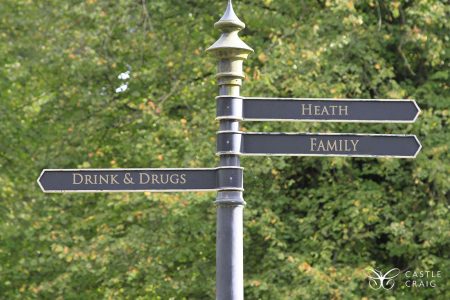Table of Contents
Family dynamics are always important because children observe and learn behaviours there that they can keep for life. Families become dysfunctional for a number of reasons – bereavement, immoral behaviour and serious illness, especially addiction, are common causes. Understanding what happens within a family can be the key to making successful life changes later on. Here we look at family dynamics where addiction is present. Addiction is truly a family disease.
No Family is Perfect but Some Families Function Far Better Than Others
It’s important to understand that no family is flawless – there is always scope for cultivating healthier family dynamics but in some cases, perhaps in families where people are less ready to care about each other for whatever reason, small defects can quickly evolve into major dysfunction.
“We are born with a completely blank slate. As we grow and develop, we continue to look to our caregivers, and our families as examples of how to interact with the world around us, as well as our role and position in our environment”.(Psychology Today).
Remember though that families are basically a power for good and they often play an important role too, in helping a person recover from addiction. At Castle Craig, we place great emphasis on the family aspects of recovery and encourage full participation in family therapy.
How Family Dysfunction Arises
Families constantly strive for stability and balance, like a well-drilled team of jugglers in a circus. But, just like a circus act, it only takes one person to malfunction slightly and then everyone else has to adjust and compensate to keep the equilibrium. So, when one or more family members struggle to regulate themselves appropriately, irrespective of the cause, other members unconsciously adopt new roles in a sometimes desperate, attempt to keep things ‘normal’. They may also seek to avoid confronting their own painful or stressful experiences and emotions. If that one problem person continues to malfunction, it may eventually bring down the whole edifice.

Download Our Brochure
Dysfunction Can Pass from Generation to Generation
Even if parents are well-meaning, they can often perpetuate the experiences they went through themselves within their family of origin and transfer those same unhealthy patterns and roles to the next generation through their own marital family. As the poet Philip Larkin put it “man hands on misery to man.”
What Are the Main Characteristics of a Dysfunctional Family?
In general, dysfunctional families struggle to interact normally and find communication difficult. They may even be in complete denial about their situation, to the extent that the subject of a person’s addiction is never raised. They may also be low in empathy or be highly judgmental (albeit mostly in private) and they may be abusive themselves.
Family Dynamics and Addiction
Living with addiction puts family members under great stress, often to breaking point. As a person’s addiction progresses, the family may respond in different ways and the impact on both adults and children will differ as the stages of addiction move from occasional abuse to full-blown dependence.
Roles Taken Within a Dysfunctional Family
When it comes to coping with addiction within a family, there are six recognised dysfunctional roles that family members may assume. Here’s a summary of these roles:
- The Enabler: This role involves enabling the addict’s behaviour by making excuses, covering up their actions, or minimising the consequences. Enablers often try to protect the addict from facing the full impact of their addiction and may inadvertently contribute to the continuation of their destructive behaviours.
- The Hero: The hero role typically involves an overachieving family member who attempts to compensate for the addict’s behaviour by excelling in other areas of life. They may strive for perfection, maintain a positive image, and take on responsibilities beyond their capacity to uphold the family’s reputation.
- The Scapegoat: This role involves a family member who acts out and displays disruptive behaviours, attracting attention away from the addict’s actions. The scapegoat often becomes the focus of blame and criticism, providing a distraction from addressing the addict’s underlying issues.
- The Lost Child: The lost child role entails a family member who withdraws from family interactions and avoids conflicts or discussions about the addiction. They may become socially isolated, lacking their own identity and relying on fantasies or solitary activities to escape the turmoil within the family.
- The Mascot: The mascot role involves a family member who uses humour, clowning, or excessive cheerfulness to diffuse tension and lighten the atmosphere within the family. They may struggle to express their own emotions seriously and may resort to distracting others from addressing the addiction.
- The Caretaker: The caretaker role typically involves a family member who takes on the responsibility of looking after everyone’s needs, including the addict’s, often neglecting their own well-being. They may sacrifice their own happiness and focus primarily on maintaining harmony within the family, avoiding conflicts and prioritising the addict’s needs.
It’s important to note that these roles are not fixed, and family members may transition between them or take on multiple roles simultaneously. Recognising these dysfunctional roles can help families identify harmful behaviour patterns and seek appropriate support to break the cycle of addiction and promote healing.
Family Dynamics and Addiction Treatment
In rehab, the therapy group is usually the dominant place where recovery begins, because it is the driving force, the engine that makes change happen. It’s no coincidence then that group dynamics often mirror family dynamics with people taking similar roles. The therapy group is a powerful tool in helping addicted people see the reality of their behaviour and how it affects others. It also provides a safe place for them to practice new, healthier behaviours.

Treating Addiction Since 1988
How Can You Survive a Dysfunctional Family?
If you find yourself in any of the above-listed roles or using typical techniques to cope with your dysfunctional family life, remember that these are natural responses to difficult experiences. It’s easy to feel overwhelmed but, with self-awareness and self-reflection you can work through the situation and construct a healthier way of relating to loved ones. It is highly likely that you will need some help with this. Your local healthcare teams should be able to help with this and may well run family therapy groups. There are also some highly effective self-help organisations such as Families Anonymous and Al Anon which are Twelve Step Fellowships specifically designed for the families of addicted people.
The Benefits of Family Therapy Groups
Family therapy groups can play a crucial role in helping dysfunctional families recover from addiction. Here’s a summary of how these groups can help:
- Education and understanding:
- Communication and conflict resolution
- Enabling responsibility
- Rebuilding trust
- Reshaping family dynamics
- Developing coping strategies
Family Therapy at Castle Craig
We have always placed great emphasis on the family aspect of addiction recovery. The close relations of people in treatment are encouraged to participate fully in our family recovery sessions and specialised Family Recovery Workshops. We fully understand that addiction is a family disease and that lasting recovery happens when the family works together to repair the damage done to relationships. The family itself represents a powerful force with great healing potential.
If you would like to know more about our family programme or if you are concerned that you or someone you love may have an addiction, call us in complete confidence on 01721 546 263.



